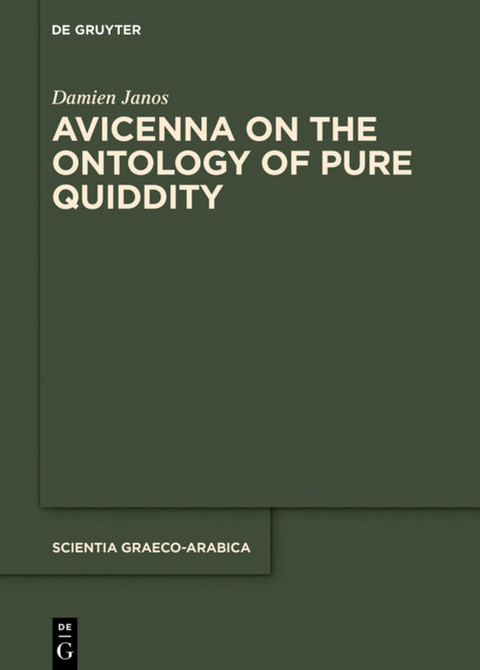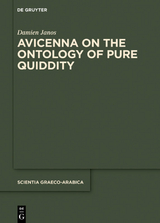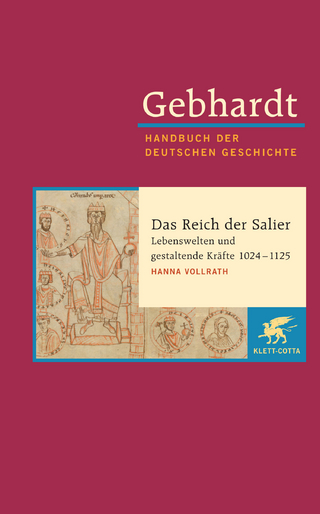Avicenna on the Ontology of Pure Quiddity
Seiten
Die Reihe widmet sich grundlegenden Texten der Wissenschaft und Philosophie der Antike und der islamischen Welt, die arabisch überliefert sind. Durch Bereitstellung kritischer Textausgaben und monographischer Untersuchungen werden der Forschung diejenigen Themenbereiche zugänglich gemacht, in denen sich die Wissenschaft zwischen der Antike und der Moderne kontinuierlich dargestellt und entwickelt hat. Die Textausgaben werden von Übersetzungen begleitet und durch inhaltliche Erläuterungen und philologische Anmerkungen erschlossen.
This study focuses on the metaphysics of the great Arabic philosopher Avicenna (or Ibn Sīnā, d. 1037 C.E.). More specifically, it delves into Avicenna’s theory of quiddity or essence, a topic which seized the attention of thinkers both during the medieval and modern periods. Building on recent contributions in Avicennian studies, this book proposes a new and comprehensive interpretation of Avicenna’s theory of ‘the pure quiddity’ (also known as ‘the quiddity in itself’) and of its ontology. The study provides a careful philological analysis of key passages gleaned from the primary sources in Arabic and a close philosophical contextualization of Avicenna’s doctrines in light of the legacy of ancient Greek philosophy in Islam and the early development of Arabic philosophy (falsafah) and theology (kalām). The study pays particular attention to how Avicenna’s theory of quiddity relates to the ancient Greek philosophical discussion about the universals or common things and Mu’tazilite ontology. Its main thesis is that Avicenna articulated a sophisticated doctrine of the ontology of essence in light of Greek and Bahshamite sources, which decisively shaped subsequent intellectual history in Islam and the Latin West.
This study focuses on the metaphysics of the great Arabic philosopher Avicenna (or Ibn Sīnā, d. 1037 C.E.). More specifically, it delves into Avicenna’s theory of quiddity or essence, a topic which seized the attention of thinkers both during the medieval and modern periods. Building on recent contributions in Avicennian studies, this book proposes a new and comprehensive interpretation of Avicenna’s theory of ‘the pure quiddity’ (also known as ‘the quiddity in itself’) and of its ontology. The study provides a careful philological analysis of key passages gleaned from the primary sources in Arabic and a close philosophical contextualization of Avicenna’s doctrines in light of the legacy of ancient Greek philosophy in Islam and the early development of Arabic philosophy (falsafah) and theology (kalām). The study pays particular attention to how Avicenna’s theory of quiddity relates to the ancient Greek philosophical discussion about the universals or common things and Mu’tazilite ontology. Its main thesis is that Avicenna articulated a sophisticated doctrine of the ontology of essence in light of Greek and Bahshamite sources, which decisively shaped subsequent intellectual history in Islam and the Latin West.
Damien Janos, University of Montreal, Canada.
| Erscheinungsdatum | 21.04.2020 |
|---|---|
| Reihe/Serie | Scientia Graeco-Arabica ; 26 |
| Zusatzinfo | b/w graphics |
| Verlagsort | Berlin/Boston |
| Sprache | englisch |
| Maße | 170 x 240 mm |
| Gewicht | 1412 g |
| Themenwelt | Geschichte ► Allgemeine Geschichte ► Altertum / Antike |
| Geisteswissenschaften ► Philosophie ► Philosophie Altertum / Antike | |
| Schlagworte | Avicenna • essence/quiddity • History of Metaphysics • Islamic philosophy • Islamische Philosophie • Medieval Philosophy • Philosophie des Mittelalters • Wesen |
| ISBN-10 | 3-11-063598-4 / 3110635984 |
| ISBN-13 | 978-3-11-063598-0 / 9783110635980 |
| Zustand | Neuware |
| Haben Sie eine Frage zum Produkt? |
Mehr entdecken
aus dem Bereich
aus dem Bereich
die Inszenierung der Politik in der römischen Republik
Buch | Hardcover (2023)
C.H.Beck (Verlag)
48,00 €
Buch | Hardcover (2024)
Klett-Cotta (Verlag)
50,00 €




